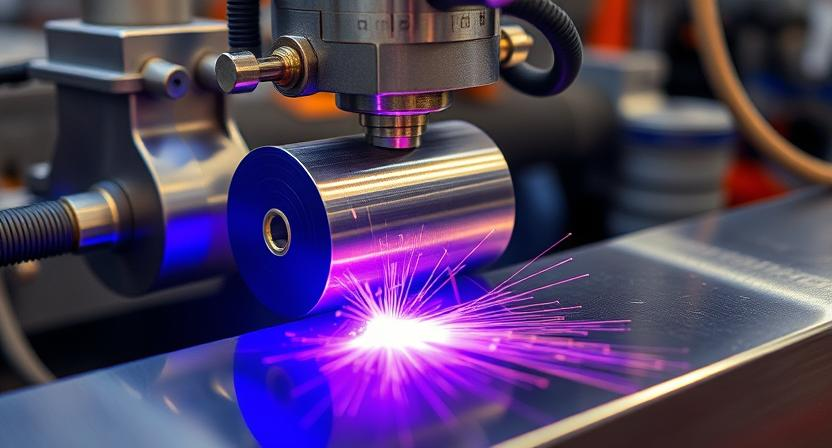Electrochemical processes are a cornerstone of modern industry, playing a crucial role in applications ranging from water treatment to metal plating. Among the various components that make these processes efficient and effective, these specialized electrodes stand out. They are celebrated for their durability, conductivity, and ability to withstand harsh environments. In this article, we will explore how these advanced components improve electrochemical processes and why they are preferred over other materials.
These electrodes are made primarily from titanium, often coated with platinum or other precious metals to enhance their performance. The base material, titanium, is known for its excellent corrosion resistance and strength, making it an ideal choice for various electrochemical applications. Such electrodes are used in a wide range of industries, including water treatment, metal finishing, and chemical manufacturing.
These specialized electrodes offer several advantages over traditional anodes made from materials like lead or graphite. Here are some of the key benefits:
Corrosion Resistance: Titanium's natural resistance to corrosion makes these components long-lasting, even in aggressive environments.
High Conductivity: When coated with platinum or other conductive materials, these electrodes provide excellent electrical conductivity.
Low Maintenance: Their durability reduces the need for frequent replacements, lowering maintenance costs.
Environmental Benefits: Unlike lead anodes, these titanium-based electrodes are environmentally friendly and do not pose the same pollution risks.
Improved Efficiency
One of the primary ways these electrodes improve electrochemical processes is by increasing efficiency. The high conductivity and low overpotential of these advanced units mean that less energy is required to drive the electrochemical reactions. This results in lower operational costs and a smaller carbon footprint for industrial processes.
Enhanced Durability
In electrochemical processes, components are often exposed to harsh conditions, including high temperatures and corrosive substances. Titanium-based electrodes are built to withstand these conditions, providing long-term performance without degrading. This durability ensures consistent results and reduces downtime due to maintenance or electrode replacement.
Versatility
These electrodes are versatile and can be tailored to specific applications. By altering the coating material, such as using platinized titanium, the electrode's properties can be optimized for particular reactions or environments. This adaptability makes them suitable for a broad range of industries and applications.
Water Treatment
In water treatment plants, these specialized electrodes play a crucial role in processes like electrochlorination, where they help disinfect water by generating chlorine gas from saltwater. Their resistance to corrosion and high efficiency make them an ideal choice for this application, ensuring safe and clean water supply.
Metal Plating

The metal plating industry relies heavily on electrochemical processes to deposit metal coatings on various substrates. Titanium-based electrodes, particularly platinized ones, are used to achieve uniform and high-quality metal deposits. Their stability and conductivity ensure that the plating process is both efficient and reliable.
Chemical Production
In the chemical industry, these electrodes are used in the production of chlorine, hydrogen, and other important chemicals through processes like electrolysis. Their ability to withstand aggressive chemical environments while maintaining high performance makes them indispensable in this sector.
Platinized titanium electrodes are a specific type of titanium-based electrode that features a thin layer of platinum coating. This coating enhances the electrode's conductivity and catalytic properties, making them even more effective in electrochemical processes.
Higher Conductivity: The platinum coating increases the electrode's electrical conductivity, improving the efficiency of the electrochemical reaction.
Potent Catalytic Properties: Platinum acts as a catalyst in many electrochemical reactions, accelerating the process and improving yields.
Increased Lifespan: The combination of titanium's durability and platinum's corrosion resistance results in an electrode with an exceptionally long lifespan.
Platinized titanium electrodes are particularly useful in applications requiring high performance and precision, such as:
Electroplating: Used for achieving high-quality metal finishes.
Electrolytic Recovery: Essential in the recovery of precious metals from waste streams.
Electrosynthesis: Used in the synthesis of organic compounds and other chemical products.
Titanium-based electrodes have revolutionized electrochemical processes by offering a durable, efficient, and environmentally friendly alternative to traditional anodes. Their versatility and ability to enhance process efficiency make them a valuable asset across various industries. By investing in these advanced components, industries can improve their operational efficiency, reduce costs, and minimize environmental impact. Whether in water treatment, metal plating, or chemical production, these electrodes continue to prove their worth as a critical component of modern electrochemical processes.